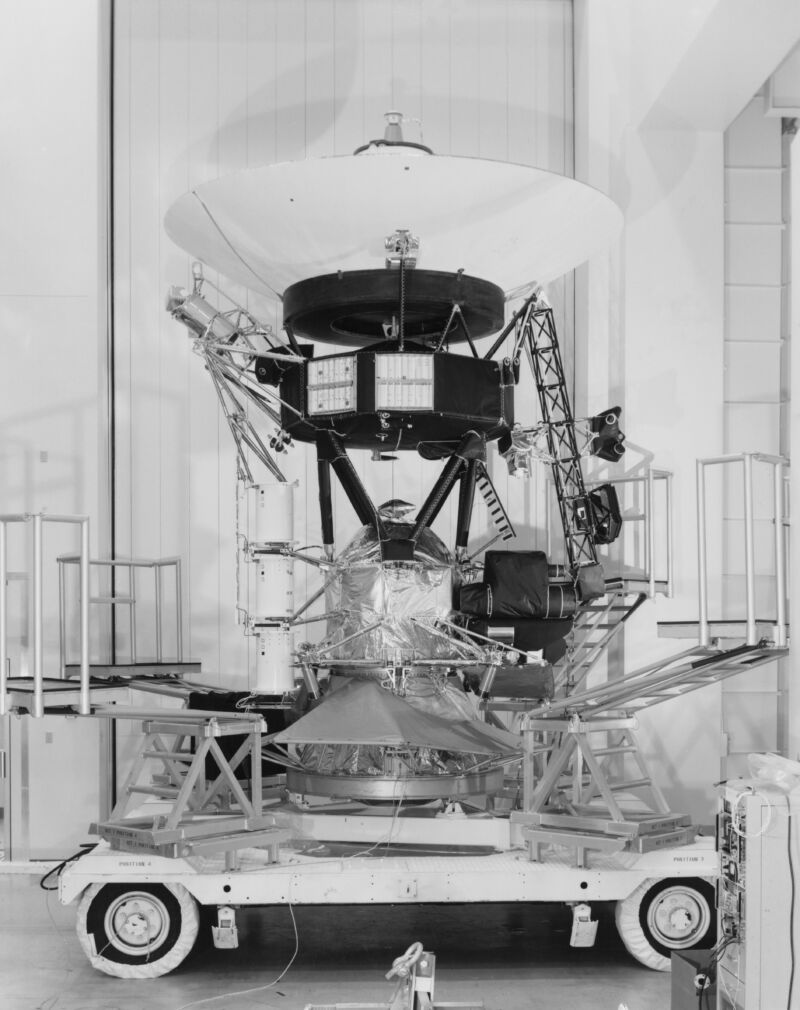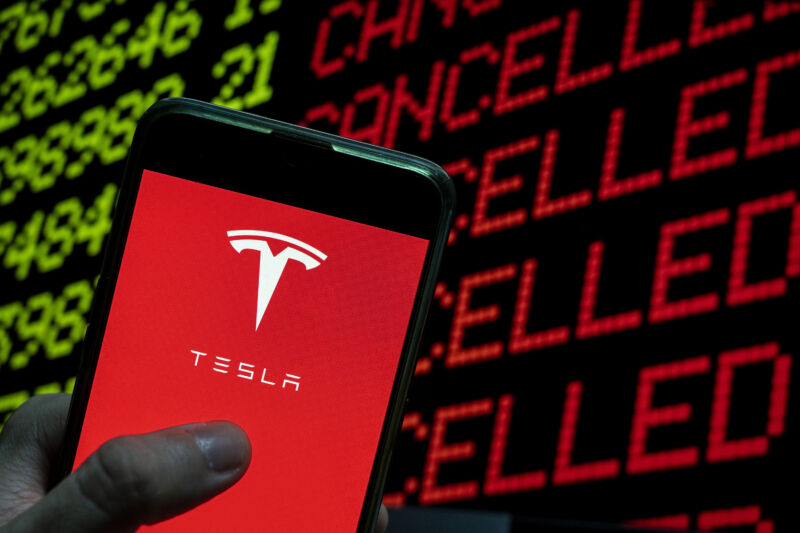U bent hier
Feed-aggregator
Erinnerungsverbot, damit der Holocaust einzigartig bleibt
Wir lesen im Perlentaucher: “Nachdem Claudia Roth Einblicke in ihr “Rahmenkonzept Erinnerungskultur” gewährt hatte, das vorsieht, dass neben dem Holocaust und der DDR-Diktatur künftig auch deutsche Kolonialverbrechen sowie Migration ihren Platz haben sollen (Unser Resümee), “hatten sich Verbände und Arbeitsgemeinschaften der Gedenkstätten zur Erinnerung an das NS-Unrecht und die SED-Diktatur in einem Brief an die Kulturstaatsministerin gegen die Aufnahme der Themen Migrationsgesellschaft und Demokratiegeschichte ausgesprochen”, berichtet Lisa Berins in der FR: “Roths Entwurf, so heißt es in dem Brief, leite ‘einen geschichtspolitischen Paradigmenwechsel ein, der zu einer fundamentalen Schwächung der Erinnerungskultur führen würde’. Er verabschiede sich von dem Konsens, nationalsozialistische Verbrechen nicht zu relativieren und SED-Unrecht nicht zu bagatellisieren. ‘Das Papier kann als geschichtsrevisionistisch im Sinne der Verharmlosung der NS-Verbrechen verstanden werden’, folgerten die Unterzeichnenden, darunter etwa die Arbeitsgemeinschaft der KZ-Gedenkstätten in Deutschland.” Roth will die Gedenkstätten nun zu einem Runden Tisch einladen.”
Aus meiner Sicht ein absurder Vorwurf. Darf der Staat nur an das „Themenfeld staatlich verübter Massenverbrechen“ erinnern?
Claims of TikTok whistleblower may not add up

Enlarge (credit: SOPA Images | LightRocket | Getty Images)
The United States government is currently poised to outlaw TikTok. Little of the evidence that convinced Congress the app may be a national security threat has been shared publicly, in some cases because it remains classified. But one former TikTok employee turned whistleblower, who claims to have driven key news reporting and congressional concerns about the app, has now come forward.
Zen Goziker worked at TikTok as a risk manager, a role that involved protecting the company from external security and reputational threats. In a wrongful termination lawsuit filed against TikTok's parent company ByteDance in January, he alleges he was fired in February 2022 for refusing “to sign off” on Project Texas, a $1.5 billion program that TikTok designed to assuage US government security concerns by storing American data on servers managed by Oracle.
Veröffentlichungen des Historischen Seminars der Universität Graz 1931-1933
Bd. 10 Franz Fabian: Prunkbittschriften an den Papst, 1931
Bd. 11 Bruno Schilling: Kaiser Ludwig der Baier in seinen Beziehungen zum Elsaß … 1932
Bd. 12 Wilhelm Erben: Mühldorfer Ritterweihen der Jahre 1319 und 1322, 1932
Bd. 13 Ernst Rönsch; Beiträge zur Geschichte der Schlacht von Mühldorf, 1933
https://books.google.de/books?id=umgXAQAAIAAJ = https://archive.org/details/veroeffentlichungen-des-historischen-seminars-graz-fabian-prunkbittschriften
Wie Sie iRights.info unterstützen können
Das Angebot von iRights.info besteht seit fast 20 Jahren. Wenn Sie möchten, können Sie uns bei unserer Arbeit unterstützen. Das hilft uns, weiterhin kostenlose und frei zugängliche Texte zum Urheberrecht zu veröffentlichen. Große und kleine, regelmäßige wie sporadische Spenden sind sehr willkommen.
Liebe Leserinnen und Leser von iRights.info,
seit dem Start vor gut 19 Jahren sind mehr als 3.300 Texte auf unserer Website erschienen: Ratgeber und Erklärtexte zum Urheberrecht und Datenschutz, sorgfältig recherchierte Hintergründe, kritische und pointierte Analysen, Berichte aus Kulturbranche und Medienindustrie, Interviews, Webschauen und vieles mehr.
Vielleicht können sich einige von Ihnen an die alten Zeiten erinnern? In Internet-Zeitrechnung sind zwei Jahrzehnte ja eine halbe Ewigkeit. Zum Jahreswechsel 2004/2005 ging iRights.info online (einige Snapshots im alten Layout sind auch bei archive.org gespeichert). Damals sah das Portal noch so aus:

Screenshot iRights.info (ca. 2006)
Wie sich das Angebot von iRights.info finanziertGetragen und herausgegeben wird iRights.info vom gemeinnützigen iRights e.V., dessen Mitglieds- und Lizenzbeiträge den Grundstock der Redaktionsarbeit finanzieren. Dazu kommen langfristige Kooperationen. Wie beispielsweise mit OERinfo, durch die wir zahlreiche Texte erarbeitet haben.
Die Redaktion arbeitet seit jeher unabhängig und hat sich zur Wahrung dieser Unabhängigkeit ein eigenes Redaktionsstatut gegeben. Bestritten wird die Redaktion von zwei Redakteur*innen mit geringen Stellenanteilen. Die eine Redakteursstelle besetzt seit 2020 Georg Fischer, die zweite Stelle ist aktuell ausgeschrieben.
Unterstützen Sie uns mit Ihrer SpendeRedaktion und Verein haben eine Bitte an Sie: Ziehen Sie eine Spende über Betterplace oder per Überweisung auf unser Spendenkonto in Betracht! Sie helfen uns mit Ihrer Spende, das Angebot von iRights.info in gewohnter Qualität aufrecht zu erhalten und auszubauen. Umso mehr Spenden wir erhalten, desto mehr Themen können wir bearbeiten. Every little helps!
Informieren und spenden: <a href=’https://www.betterplace.org/de/projects/120241-irights-info-informationsplattform-zum-urheberrecht-in-der-digitalen-welt’ target=’_blank’>„iRights.info – Informationsplattform zum Urheberrecht in der digitalen Welt“</a> auf betterplace.org öffnen.
Egal ob klein oder groß, regelmäßig oder sporadisch, von Privatpersonen oder Organisationen – wir freuen uns über jede Spende, jeder Beitrag hilft uns weiter. Dank Ihrer Unterstützung können wir mehr Themen in Eigenregie bearbeiten und zudem mehr bezahlte Aufträge an Freie Mitarbeitende geben, als uns dies derzeit möglich ist.
iRights.info war, ist und bleibt offenUnserer Prämisse, die Öffentlichkeit über spannende Themen zu Urheberrecht und Kreativität in der digitalen Welt informieren, werden wir in jedem Fall treu bleiben. Wir fühlen uns der Offenheit verpflichtet.
Es gilt wie bisher auch: Alle eigens erarbeiteten Angebote auf unserer Seite sind und bleiben kostenlos, frei zugänglich (d.h. ohne Bezahlschranke oder Konto-/Abozwang), offen lizenziert (in der Regel unter CC BY) – und selbstverständlich qualitätsgesichert.
Mehr über iRights.infoWenn Sie Näheres über die Arbeit, Geschichte und Finanzierung von iRights.info wissen wollen, können Sie sich hier informieren. Dort sind auch die Tätigkeitsberichte der letzten Jahre abgelegt. Sie dokumentieren die vielfältigen Aktivitäten des iRights e.V. und der Redaktionsmitglieder in den Bereichen Urheberrecht, Open Access, Open Educational Resources und mehr. Für Rückfragen und Anregungen stehen wir Ihnen gerne per Mail zur Verfügung.
Wir freuen uns über Ihre Unterstützung und Ihre jahrelange Treue!
Mit den besten Grüßen
Ihre Redaktion von iRights.info
The post Wie Sie iRights.info unterstützen können appeared first on iRights.info.
NASA knows what knocked Voyager 1 offline, but it will take a while to fix

Enlarge / A Voyager space probe in a clean room at the Jet Propulsion Laboratory in 1977. (credit: Space Frontiers/Archive Photos/Getty Images)
Engineers have determined why NASA's Voyager 1 probe has been transmitting gibberish for nearly five months, raising hopes of recovering humanity's most distant spacecraft.
Voyager 1, traveling outbound some 15 billion miles (24 billion km) from Earth, started beaming unreadable data down to ground controllers on November 14. For nearly four months, NASA knew Voyager 1 was still alive—it continued to broadcast a steady signal—but could not decipher anything it was saying.
Confirming their hypothesis, engineers at NASA's Jet Propulsion Laboratory (JPL) in California confirmed a small portion of corrupted memory caused the problem. The faulty memory bank is located in Voyager 1's Flight Data System (FDS), one of three computers on the spacecraft. The FDS operates alongside a command-and-control central computer and another device overseeing attitude control and pointing.
$158,000 ALS drug pulled from market after failing in large clinical trial

Amylyx, the maker of a new drug to treat ALS, is pulling that drug from the market and laying off 70 percent of its workers after a large clinical trial found that the drug did not help patients, according to an announcement from the company Thursday.
The drug, Relyvrio, won approval from the Food and Drug Administration in September 2022 to slow the progression of ALS (amyotrophic lateral sclerosis, or Lou Gehrig's disease). However, the data behind the controversial decision was shaky at best; it was based on a study of just 137 patients that had several weaknesses and questionable statistical significance, and FDA advisors initially voted against approval. Still, given the severity of the neurogenerative disease and lack of effective treatments, the FDA ultimately granted approval under the condition that the company was working on a Phase III clinical trial to solidify its claimed benefits.
Relyvrio—a combination of two existing, generic drugs—went on the market with a list price of $158,000.
Apple now allows retro game emulators on its App Store—but with big caveats

Enlarge / The classic Sega Genesis game Sonic the Hedgehog running on an iPhone—in this case, as a standalone app. (credit: Samuel Axon)
When Apple posted its latest update to the App Store's app review and submission policies for developers, it included language that appears to explicitly allow a new kind of app for emulating retro console games.
Apple has long forbidden apps that run code from an external source, but today's announced changes now allow "software that is not embedded in the binary" in certain cases, with "retro game console emulator apps can offer to download games" specifically listed as one of those cases.
Here's the exact wording:
Roku has patented a way to show ads over anything you plug into your TV

Enlarge / A promotional image for a Roku TV. (credit: Roku)
Roku TV sets come with ads. Generally, these are restricted to Roku's home and menu screens, its screensavers, and its first-party video channels, and once you start playing video, the only ads you'll see are the ones from the service you're streaming from. That said, Roku TVs have shown ads atop live TV before.
Now, the company is apparently experimenting with ways to show ads over top of even more of the things you plug into your TV. A patent from spotted by Lowpass describes a system for displaying ads over any device connected over HDMI, a list that could include cable boxes, game consoles, DVD or Blu-ray players, PCs, or even other video streaming devices. Roku filed for the patent in August 2023 and it was published in November 2023, though it hasn't yet been granted.
The technology described would detect whether content was paused in multiple ways—if the video being displayed is static, if there's no audio being played, if a pause symbol is shown anywhere on screen, or if (on a TV with HDMI-CEC enabled) a pause signal has been received from some passthrough remote control. The system would analyze the paused image and use metadata "to identify one or more objects" in the video frame, transmit that identification information to a network, and receive and display a "relevant ad" over top of whatever the paused content is.
Will there be a Dune: Part Three? Yes… with caveats on timing

Enlarge / Legendary Pictures has confirmed that it plans to make Dune: Part Three with director Denis Villeneuve. (credit: YouTube/Warner Bros.)
Dune: Part Two is still raking in the moolah at the box office, and deservedly so. But judging by my various feeds, fans are already swooning over the prospect of director Denis Villeneuve extending his vision into a trilogy by adapting Frank Herbert's 1969 sequel, Dune Messiah, for the next installment. Will there be a Dune: Part Three? Most signs currently point to yes, with a couple of caveats. Exactly how soon we'll be seeing a return to Arrakis depends a lot on Villeneuve.
Variety confirmed that Legendary Pictures is working with the director on developing Dune: Part Three, although it remains unclear from the wording of the plethora of news items whether the project has officially been greenlit. ("Development" can mean a lot of things.) Naturally, the studio is eager, as are we: the film is the biggest hit of 2024 thus far, with global earnings of $630 million (although the hotly anticipated Deadpool and Wolverine this summer might give it a run for its money).
That confirmation sent fresh frissons of excitement across the Internet, although Villeneuve had been talking about the prospect as far back as September 2021. Those plans always depended on the success of Part Two, and that hurdle has obviously been cleared. By August 2023, the director was on record saying there were "words on paper" for a third film. And we learned just last month that composer Hans Zimmer was already working on the score for Dune: Part Three.
Tesla scraps its plan for a $25,000 Model 2 EV

Enlarge (credit: Budrul Chukrut/SOPA Images/LightRocket via Getty Images)
Tesla has abandoned plans to develop an affordable electric Model 2, according to a report in Reuters. The news organization says it has reviewed company messages that say the affordable Model Y, which Tesla CEO Elon Musk claimed would sell for $25,000 or less, has been axed.
Musk has been talking about an affordable Tesla Model 2 for some time now. An affordable mass-market EV was supposedly always key to the company's long-range "master plans," and in December 2023 he said the company was working on a "low-cost electric vehicle that will be made at very high volume." Then, this March, Musk told Tesla workers that the Model 2 would go into production at the company's factory in Berlin, Germany.
In light of this news, that statement certainly raises eyebrows—Reuters reports that one of its three unnamed sources told it that the decision to scrap the Model 2 was made in late February. Instead, Musk is allegedly "all in on robotaxi," Tesla's plan to create an autonomous driving system that could allow its cars to compete with Uber or Lyft without a driver in the equation.
German state gov. ditching Windows for Linux, 30K workers migrating

Schleswig-Holstein, one of Germany’s 16 states, on Wednesday confirmed plans to move tens of thousands of systems from Microsoft Windows to Linux. The announcement follows previously established plans to migrate the state government off Microsoft Office in favor of open source LibreOffice.
As spotted by The Document Foundation, the government has apparently finished its pilot run of LibreOffice and is now announcing plans to expand to more open source offerings.
In 2021, the state government announced plans to move 25,000 computers to LibreOffice by 2026. At the time, Schleswig-Holstein said it had already been testing LibreOffice for two years.
Entwicklung und Funktion von Burgen im südlichen Jütland (1232–1443)
https://library.oapen.org/handle/20.500.12657/86392 (Open Access)
Drei frühneuzeitliche Aztekencodices wiederentdeckt
https://www.wissenschaft.de/geschichte-archaeologie/drei-aztekencodices-wiederentdeckt/
https://www.jornada.com.mx/2024/03/21/cultura/a03n1cul
#fnzhss
Android’s AirTag competitor gears up for launch, thanks to iOS release

Enlarge / Pebblebee's Android trackers. (credit: Pebblebee)
Will Google ever launch its "Find My" network? The Android ecosystem was supposed to have its own version of Apple's AirTags by now. Google has had a crowd-sourced device-tracking network sitting dormant on 3 billion Android phones since December 2022. Partners have been ready to go with Bluetooth tag hardware since May 2023! This was all supposed to launch a year ago, but Google has been in a holding pattern. The good news is we're finally seeing some progress after a year of silence.
The reason for Google's lengthy delay is actually Apple. A week before Google's partners announced their Android network Bluetooth tags, Google and Apple jointly announced a standard to detect "unknown" Bluetooth trackers and show users alerts if their phone thinks they're being stalked. Since you can constantly see an AirTag's location, they can be used for stalking by just covertly slipping one into a bag or car; nobody wants that, so everyone's favorite mobile duopoly is teaming up.
Google did its half of this partnership and rolled out AirTag detection in July 2023. At the same time, Google also announced: "We’ve made the decision to hold the rollout of the Find My Device network until Apple has implemented protections for iOS." Surely Apple would be burning the midnight oil to launch iOS Android tag detection as soon as possible so that Google could start competing with AirTags.
Tiny cracks in rocks may have concentrated chemicals needed for life

Enlarge / Active geology could have helped purify key chemicals needed for life. (credit: Christof B. Mast)
In some ways, the origin of life is looking much less mystifying than it was a few decades ago. Researchers have figured out how some of the fundamental molecules needed for life can form via reactions that start with extremely simple chemicals that were likely to have been present on the early Earth. (We've covered at least one of many examples of this sort of work.)
But that research has led to somewhat subtler but no less challenging questions. While these reactions will form key components of DNA and protein, those are often just one part of a complicated mix of reaction products. And often, to get something truly biologically relevant, they'll have to react with some other molecules, each of which is part of its own complicated mix of reaction products. By the time these are all brought together, the key molecules may only represent a tiny fraction of the total list of chemicals present.
So, forming a more life-like chemistry still seems like a challenge. But a group of German chemists is now suggesting that the Earth itself provides a solution. Warm fluids moving through tiny fissures in rocks can potentially separate out mixes of chemicals, enriching some individual chemicals by three orders of magnitude.
Vergeblicher Rat
Ernst Dümmler veröffentlichte in der Deutschen Zeitschrift für Geschichtswissenschaft 1893 eine Kritik des von Emil Krüger veröffentlichten Aufsatzes über die Abstammung Heinrichs I. von den Karolingern (WIkisource), der seiner Ansicht nach “durch die Zuversichtlichkeit seiner Behauptungen bei ungenügender Begründung zu starken Bedenken Anlass gibt” und mit den Worten schließt: “Wir können dem Verfasser, falls er sich auf fernere genealogische Untersuchungen einlassen sollte, nicht dringend genug Vorsicht und Nüchternheit empfehlen, ohne welche aller Scharfsinn fruchtlos verschwendet wird.” Krüger erwiderte: “Den mir zum Schluss gegebenen Rath muss ich selbst von einem früheren Lehrer höflich, aber entschieden zurückweisen; ich muss fast vermuthen, dass Herrn Dümmler, von anderem ganz abgesehen, meine Arbeiten über die Werdenberger in den St. Galler Mittheilungen, über die Habsburger im Jahrbuch f. Schweizerische Geschichte und über die Zähringer in der Zeitschrift f. Geschichte d. Oberrheins entgangen sind, denn andernfalls hätte er doch wohl beachtet, dass ich gerade auf genealogischem Gebiete einige Leistungen aufzuweisen habe und also wohl weiss, wie weit ich in der Combination gehen darf, ohne welche auch die nüchternste und vorsichtigste Forschung nun einmal nicht auskommen kann”.
Nun kann man die Historiker, die sich am Ende des 19. Jahrhunderts um die früh- und hochmittelalterliche Genealogie kümmerten, nicht mit den “lügenden Genealogen” in einen Topf werfen. Aber die meisten waren doch allzu kombinationsfreudig und haben der Wissenschaft aus meiner Sicht mit ihren Hypothesen keinen Gefallen getan. Das gilt auch für Emil Krüger (1852-1919),1 der als Lehrer an Privatschulen in Kassel, Braunschweig und Magdeburg tätig war. Seine genealogischen Arbeiten (vor allem über Habsburger, Welfen, Werdenberger, Württemberger und Zähringer), die im Opac der Regesta Imperii mit denen eines gleichnamigen Trierer Autors vermischt sind, wurden als Ganzes nicht akzeptiert und sind heute allenfalls als Materialsammlung zu Quellennennungen von Nutzen. Als Monographie ist vor allem der “Ursprung des Welfenhauses” 1899 (GDZ) zu nennen.
Einige Namen weiterer unvorsichtiger Genealogen aus der gleichen Zeit (Nachweise im genannten Opac):
Hermann Bauer, der allerdings schon 1872 starb
Gustav Bossert der Ältere
Wilhelm Gisi
Heinrich Witte (er kritisierte deutlich Krügers Ansichten zu den Welfen: Internet Archive)
Auf den Leiter des Staatsarchivs Darmstadt, Gustav Schenk zu Schweinsberg, der zwei Folgen genealogischer Studien zur Reichsgeschichte publizierte, komme ich vielleicht noch zurück.
- Im gleichen Jahr 1852 wurde ein nicht identischer Karl Emil Krüger geboren, der 1879 in Leipzig promovierte: GBS.
FCC won’t block California net neutrality law, says states can “experiment”

Enlarge (credit: Getty Images | Matt Anderson Photography)
California can keep enforcing its state net neutrality law after the Federal Communications Commission implements its own rules. The FCC could preempt future state laws if they go far beyond the national standard but said that states can "experiment" with different regulations for interconnection payments and zero-rating.
The FCC scheduled an April 25 vote on Chairwoman Jessica Rosenworcel's proposal to restore net neutrality rules similar to the ones introduced during the Obama era and repealed under former President Trump. The FCC yesterday released the text of the pending order, which could still be changed but isn't likely to get any major overhaul.
State-level enforcement of net neutrality rules can benefit consumers, the FCC said. The order said that "state enforcement generally supports our regulatory efforts by dedicating additional resources to monitoring and enforcement, especially at the local level, and thereby ensuring greater compliance with our requirements."
Ivanti CEO pledges to “fundamentally transform” its hard-hit security model

Enlarge (credit: Getty Images)
Ivanti, the remote-access company whose remote-access products have been battered by severe exploits in recent months, has pledged a "new era," one that "fundamentally transforms the Ivanti security operating model" backed by "a significant investment" and full board support.
CEO Jeff Abbott's open letter promises to revamp "core engineering, security, and vulnerability management," make all products "secure by design," formalize cyber-defense agency partnerships, and "sharing information and learning with our customers." Among the details is the company's promise to improve search abilities in Ivanti's security resources and documentation portal, "powered by AI," and an "Interactive Voice Response system" for routing calls and alerting customers about security issues, also "AI-powered."
Ivanti CEO Jeff Abbott addresses the company's "broad shift" in its security model.
Ivanti and Abbott seem to have been working on this presentation for a while, so it's unlikely they could have known it would arrive just days after four new vulnerabilities were disclosed for its Connect Secure and Policy Secure gateway products, two of them rated for high severity. Those vulnerabilities came two weeks after two other vulnerabilities, rated critical, with remote code execution. And those followed "a three-week spree of non-stop exploitation" in early February, one that left security directors scrambling to patch and restore services or, as federal civilian agencies did, rebuild their servers from scratch.







































































































![Reference manager - [Onderhoud aantekeningen]](https://www.labyrinth.rienkjonker.nl/sites/default/files/styles/medium/public/Reference%20manager%20v3%20-%20%5BOnderhoud%20aantekeningen%5D%2014-2-2010%20102617_0.jpg?itok=OJkkWhxY)
![Reference manager - [Onderhoud aantekeningen]](https://www.labyrinth.rienkjonker.nl/sites/default/files/styles/medium/public/Reference%20manager%20v3%20-%20%5BOnderhoud%20aantekeningen%5D%2014-2-2010%20102628.jpg?itok=CUvhRRr7)
![Reference manager - [Onderhoud bronnen] - Opnemen en onderhouden](https://www.labyrinth.rienkjonker.nl/sites/default/files/styles/medium/public/Reference%20manager%20v3%20-%20%5BOnderhoud%20bronnen%5D%2014-2-2010%20102418.jpg?itok=d7rnOhhK)
![Reference manager - [Onderhoud bronnen]](https://www.labyrinth.rienkjonker.nl/sites/default/files/styles/medium/public/Reference%20manager%20v3%20-%20%5BOnderhoud%20bronnen%5D%2014-2-2010%20102433.jpg?itok=CgS8R6cS)
![Reference manager - [Onderhoud bronnen]](https://www.labyrinth.rienkjonker.nl/sites/default/files/styles/medium/public/Reference%20manager%20v3%20-%20%5BOnderhoud%20bronnen%5D%2014-2-2010%20102445_0.jpg?itok=4oJ07yFZ)
![Reference manager - [Onderhoud bronnen]](https://www.labyrinth.rienkjonker.nl/sites/default/files/styles/medium/public/Reference%20manager%20v3%20-%20%5BOnderhoud%20bronnen%5D%2014-2-2010%20102500.jpg?itok=ExHJRjAO)
![Reference manager - [Onderhoud bronnen]](https://www.labyrinth.rienkjonker.nl/sites/default/files/styles/medium/public/Reference%20manager%20v3%20-%20%5BOnderhoud%20bronnen%5D%2014-2-2010%20102524.jpg?itok=IeHaYl_M)
![Reference manager - [Onderhoud bronnen]](https://www.labyrinth.rienkjonker.nl/sites/default/files/styles/medium/public/Reference%20manager%20v3%20-%20%5BOnderhoud%20bronnen%5D%2014-2-2010%20102534.jpg?itok=cdKP4u3I)
![Reference manager - [Onderhoud thema's en rubrieken]](https://www.labyrinth.rienkjonker.nl/sites/default/files/styles/medium/public/Reference%20manager%20v3%20-%20%5BOnderhoud%20themas%20en%20rubrieken%5D%2020-9-2009%20185626.jpg?itok=zM5uJ2Sf)













![Reference manager - [Raadplegen aantekeningen]](https://www.labyrinth.rienkjonker.nl/sites/default/files/styles/medium/public/Reference%20manager%20v3%20-%20%5BRaadplegen%20aantekeningen%5D%2020-9-2009%20185612.jpg?itok=RnX2qguF)
![Reference manager - [Relatie termen (thesaurus)]](https://www.labyrinth.rienkjonker.nl/sites/default/files/styles/medium/public/Reference%20manager%20v3%20-%20%5BRelatie%20termen%20%28thesaurus%29%5D%2014-2-2010%20102751.jpg?itok=SmxubGMD)
![Reference manager - [Thesaurus raadplegen]](https://www.labyrinth.rienkjonker.nl/sites/default/files/styles/medium/public/Reference%20manager%20v3%20-%20%5BThesaurus%20raadplegen%5D%2014-2-2010%20102732.jpg?itok=FWvNcckL)
![Reference manager - [Zoek thema en rubrieken]](https://www.labyrinth.rienkjonker.nl/sites/default/files/styles/medium/public/Reference%20manager%20v3%20-%20%5BZoek%20thema%20en%20rubrieken%5D%2020-9-2009%20185546.jpg?itok=6sUOZbvL)
![Reference manager - [Onderhoud rubrieken]](https://www.labyrinth.rienkjonker.nl/sites/default/files/styles/medium/public/Reference%20manager%20v3%2020-9-2009%20185634.jpg?itok=oZ8RFfVI)

![Reference manager - [Onderhoud aantekeningen]](https://www.labyrinth.rienkjonker.nl/sites/default/files/styles/medium/public/Reference%20manager%20v3%20-%20%5BOnderhoud%20aantekeningen%5D%2014-2-2010%20102603.jpg?itok=XMMJmuWz)


































































